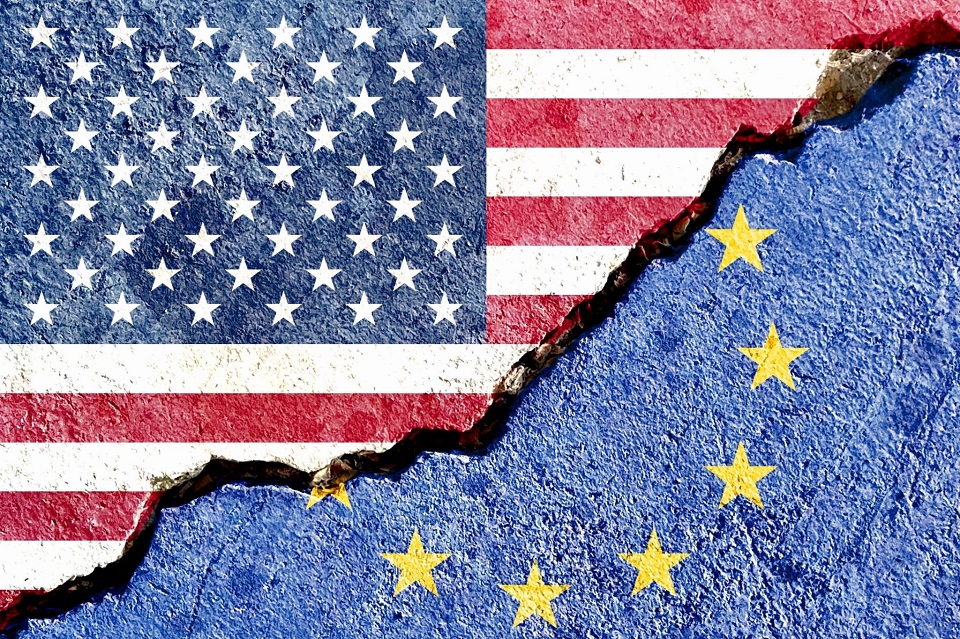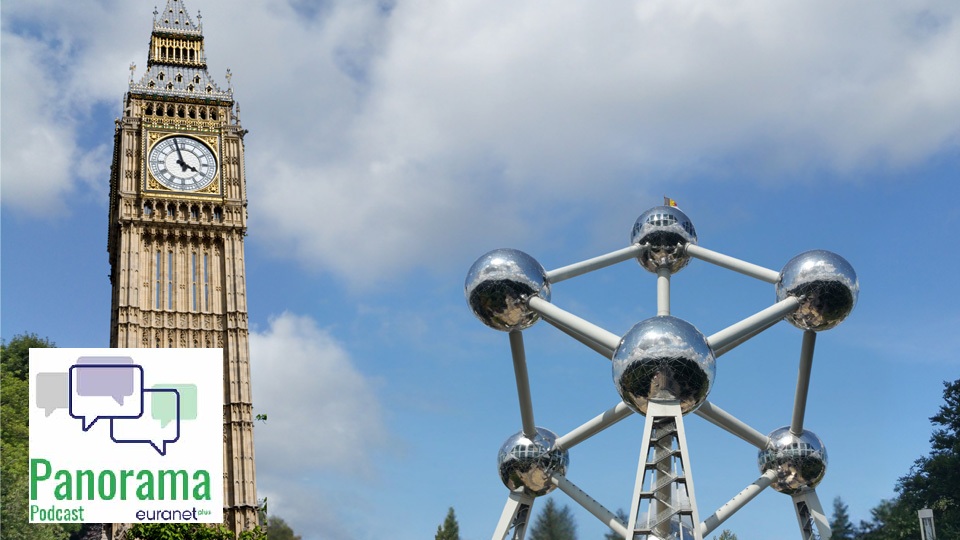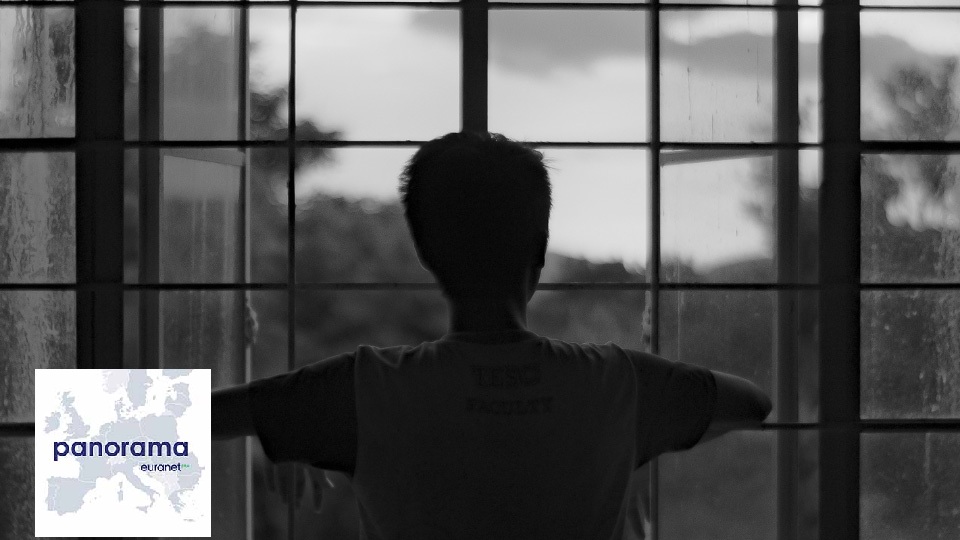Panorama 14.03.2025
Euranet Plus Panorama is a weekly news review that showcases our network’s wide-ranging coverage of EU-related stories.

Eugen Cojocariu, 17.03.2025, 15:43
A seismic shift in global politics… and European policy
There now appears to be a groundswell of support for increased militarisation in Europe, against a backdrop of suspended US military aid to Ukraine and a radical reshuffling of global alliances.
On 4 March, European Commission president Ursula von der Leyen presented her ‘ReArm Europe’ plan amid a drive to shore up support for Ukraine and bolster European security after Donald Trump pulled the plug on aid and intelligence sharing.
Europe puts its money where its mouth is
Two days later, at a special summit in Brussels, European leaders largely threw their weight behind this plan, which is worth some 800 billion euros, agreeing that Europe must become “more sovereign, more responsible for its own defence and better equipped to act and deal autonomously with immediate and future challenges and threats”.
The cited 800 billion comprises a 150-billion common loan scheme secured against unused funds in the EU budget, plus a relaxation of the EU’s fiscal rules that could unlock a further 650 billion in new defence spending by member states over the next four years. EU countries could use some of this money to finance military aid for Ukraine.
Among other measures, President von der Leyen is also proposing grouped defence purchases to reduce costs, redirecting existing funds under the current long-term budget, and lifting restrictions on support for large defence companies.
EPP member Siegfried Mureşan, from Romania, is in favour of this unprecedented move. But, he cautions, it has to be done right. Radio România shares his comments made in the European Parliament plenary this week.
Siegfried Mureşan, Member of the European Parliament – EPP, Romania (in English):
“I believe the 150-billion-euro common European project put forward by the European Commission is correct, but we have to do it right. When we spend European money, we have to support European projects. We should use this European fund to do projects which none of the member states can do alone, so that the citizens of Europe see the added value of Europe. We should do the common European air defence shield and other European projects. Invest in European research, produce more, order more, in bigger quantities, at a smaller unit price, the same equipment for the militaries of all EU member states. Europe can do a lot to make sure that our militaries are well equipped with this European project.”
Given that this 150 billion comes in the form of loans rather than grants, Estonian MEP Sven Mikser, who sits on the European Parliament’s security and defence committee, acknowledges that more actual money needs to be found. He is speaking to a BNR journalist in Strasbourg.
Sven Mikser, Member of the European Parliament – S&D, Estonia (in English):
“I’m optimistic that defence will significantly grow as a priority area in the discussions leading to the next multiannual financial framework, but also in the interim period. I think there’s a broadly shared understanding that the instruments we need cannot be financed by just cannibalising the previously existing instruments to finance the new ones. There is an urgent need for fresh funds.”
Targeting two per cent
Pressure is growing on all member states to increase their national defence budgets, but especially the seven NATO members that have so far failed to comply with the two-per-cent target set more than a decade ago. Belgium and Italy are among these.
On Monday, Italy’s foreign minister and deputy PM Antonio Tajani told journalists including our colleagues at Radio 24 that Rome backs the proposed defence plan, and also needs to work to meet its NATO commitments.
Antonio Tajani, Deputy Prime Minister of Italy (in Italian):
“One thing is the two-per-cent target to comply with our NATO commitments, which we must absolutely reach because we cannot always be asking the Americans to guarantee our security. Another is to proceed with the strengthening of European security, from Ukraine to the Atlantic, which we must guarantee in collaboration with NATO. I believe that, as the president of the ECB [Christine] Lagarde said, these investments in defence will also aid the growth of the European economy.”
And here is Maxime Prévot, Belgium’s foreign minister, speaking to RTBF on the subject of his own country’s defence spending last week.
Maxime Prévot, Minister of Foreign Affairs of Belgium (in French):
“There has been discontent for years about the fact that we are the worst pupil in NATO’s class, even though all the strategic decision-making sites are on Belgian territory. So our allies have the feeling that we’re having our cake and eating it too, while failing to do our fair share. So yes, we need to move faster.”
Yet Lithuanian Renew Europe MEP Petras Auštrevičius is concerned that even if all of Europe’s NATO members managed to meet their NATO commitments, this still wouldn’t be enough to prevent us from relying on the US. He is speaking to Žinių Radijas.
Petras Auštrevičius, Member of the European Parliament – Renew Europe, Lithuania (in Lithuanian):
“If we want to be at least on a par with the United States, the benchmark is four to five per cent of GDP. That is the figure. Right now, we are at less than half of that, and yet we want autonomy. At this point in time, I do not see the necessary conditions in place for that autonomy.”
In Germany, too, although the next coalition government has not yet been formally agreed, there are strong indications from both the CDU/CSU and the SPD that a significant change to the country’s constitution could be on the cards in order to allow increased spending on defence. This is something that would previously have been unthinkable coming from Berlin.
Dissenting voices
With mutterings about the possibility of extending British and French nuclear protection to other European partners, there are signs that this latest global political cloud may have one silver lining: a clear move on the part of European nations to pull closer together.
But it goes without saying that there are dissenting voices – quite often belonging to those who sit towards the left of the political spectrum.
Take the leader of Italy’s Five Star Movement, Giuseppe Conte, who personally considers that his populist party sits above the left-right divide (although between you and me, it perhaps leans more to the left than to the right). Conte expressed his categorical opposition to the VDL plan in Strasbourg on Tuesday.
Giuseppe Conte, Leader of Five Star Movement (in Italian):
“We are here today to reiterate that we do not want a Europe of arms, but a Europe of peace. We cannot afford to spend 800 billion euros on a war economy. We want a peace economy. The security architecture cannot be built by throwing money around; by squandering money on weapons and military investments in a hasty and haphazard manner, without the shred of a serious common defence project.”
Austrian ecologist Dr Jacqueline Jerney, too, who sits on the board of pro-democracy NGO Attac Austria. She tells our colleagues at Agora that Europe is already sufficiently well-armed, that a new arms race would have dire consequences and that, instead, the bloc should be pursuing an active peace policy.
Jacqueline Jerney, Austrian Ecologist (in German):
“To create and maintain peace, Europe needs a concept in which military structures are designed in such a way that they enable weapons systems for defence purposes, but do not pose an offensive threat to other states. This would contribute to de-escalation and to avoiding an arms race. This is a concept known as structural non-aggression. In addition to a defensive military strategy, it includes the restriction of offensive weapons for large-scale attacks, coordination on security issues, and above all an active peace policy. A third military structure in the EU, in addition to national armies and NATO units, with additional rearmament in terms of manpower and military equipment, such as tanks or guided missiles, is not a solution.”
And Jerney goes on to point out that with all the focus on defence, other vital concerns are falling by the wayside… potentially causing something of a vicious cycle.
Jacqueline Jerney, Austrian Ecologist (in German):
“While the EU wants to relax its fiscal rules to upgrade its armaments, climate protection and social sustainability are being subordinated to the arms race. All of this makes people feel insecure. This insecurity strengthens right-wing extremists and cynical forces and so threatens our democracy.”
Belgian member of the Parliament’s Left group Marc Botenga makes a similar argument in an interview with RTBF – that any hike in military spending would come at the expense of other key priorities.
Marc Botenga, Member of the European Parliament – The Left, Belgium (in French):
“This is money that could have been used for pensions, salaries, healthcare, public transport. We could almost have a station and a bus stop with punctual buses everywhere in every European village. But no, they’re spending it today on the military. And let’s speak some truths here: when we look at the figures beyond the percentages, we are already spending two to three times more on war than Russia is.”
Botenga also argues that we need a more future-proofed approach to defence, underlining the importance of cyber-defence and AI.
Marc Botenga, Member of the European Parliament – The Left, Belgium (in French):
“We had ChatGPT from the US. Now China has apparently caught up a bit, through a concerted effort, with DeepSeek. But Europe is nowhere to be seen in this regard. So what we need to do is commit to investing heavily in developing a digital infrastructure that will give us autonomy – autonomy in relation to the cloud – so that we have control over the data and we can say we have strategic autonomy in digital technology. It’s not impossible to catch up, as China has shown, but I don’t see any public investment here. We’re going to spend a lot of money on F-35 [fighter jets], but tomorrow’s war may be fought with drones and AI.”
This said, it is highly unlikely that ReArm Europe – which requires a qualified majority rather than unanimity – will fail to be adopted by the Council. And at their plenary session in Strasbourg this week, MEPs also overwhelmingly backed the VDL plan.
Meanwhile, a so-called ‘White Paper’ is currently being drawn up by the Commission and the High Representative, putting forward concrete proposals for “groundbreaking” EU action in the field of defence. It is expected to be unveiled as early as next week.





























